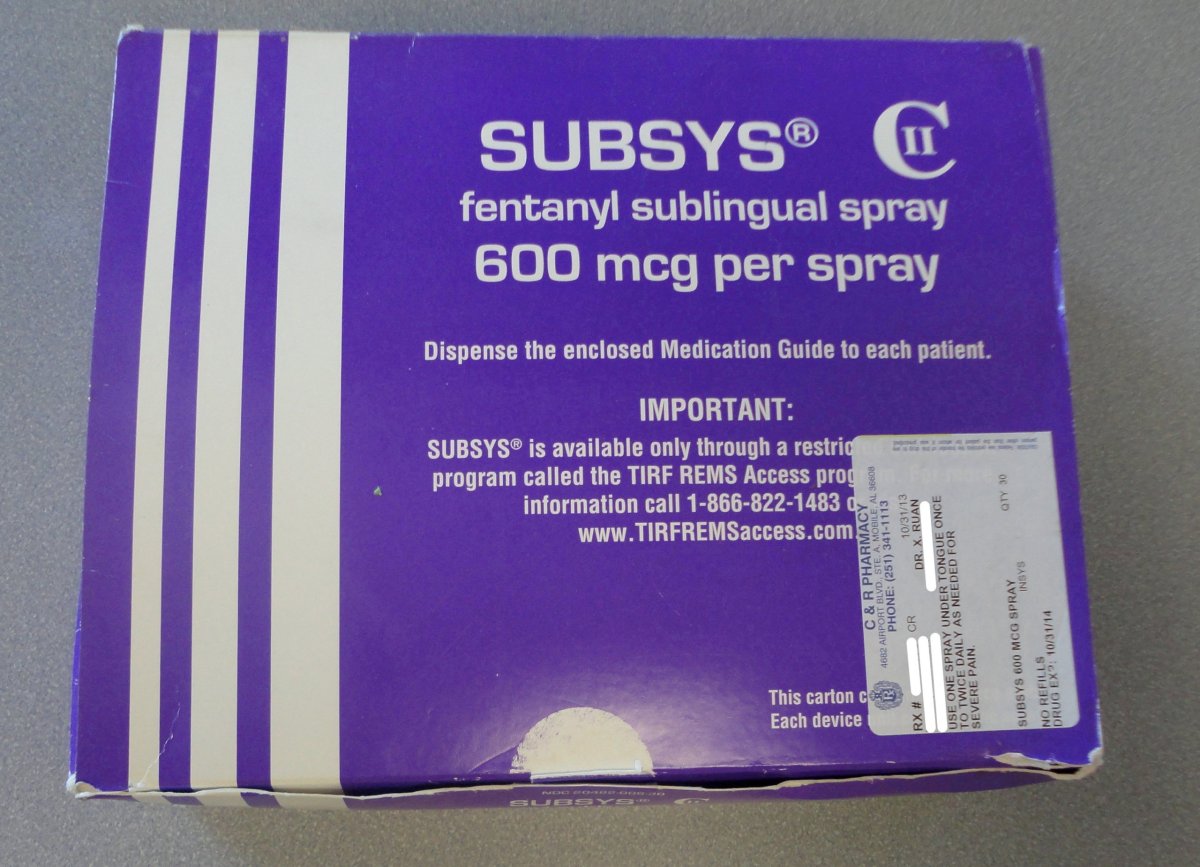By Nate Raymond
(Reuters) – Maryland’s attorney general has filed a lawsuit seeking to enforce a subpoena the state sent Insys Therapeutics Inc as part of a probe into allegations the drugmaker deceptively marketed a fentanyl-based cancer pain medicine.
Maryland Attorney General Brian Frosh confirmed on Thursday that his office filed a lawsuit in state court after Insys resisted turning over documents sought as part of an investigation into the drugmaker’s role in the opioid epidemic.
Frosh said the state had been investigating the Chandler, Arizona-based company since 2016 amid allegations that Insys had marketed its product Subsys to not just patients with severe cancer pain but for other conditions.
The lawsuit, filed on Monday, called Insys’s resistance to turning over all of the documents the state sought “troubling” given its claims that its conduct had changed.
“Usually the reason people fight disclosures is that they don’t want the people seeking disclosures to know what they’ve been up to,” Frosh said in an interview.
Insys did not immediately respond to a request for comment. It has said that it has taken steps to prevent past mistakes from happening again and has said that Subsys made up 0.02 percent of opioid prescriptions in 2016.
Insys has found itself at the center of several lawsuits and investigations focused on Subsys, an under-the-tongue spray intended for cancer patients that contains fentanyl, a synthetic opioid.
Federal prosecutors in Boston have accused seven former executives and managers at Insys including billionaire founder John Kapoor of participating in a scheme to bribe doctors to prescribe Subsys and to defraud insurers.
According to prosecutors, beginning in 2012, Kapoor, former Insys Chief Executive Michael Babich and others engaged in a scheme to bribe medical practitioners by paying them to participate in sham speaker program events.
Prosecutors have sought to link the case to the national opioid abuse epidemic. Opioids were involved in over 42,000 overdose deaths in 2016, according to the U.S. Centers for Disease Control and Prevention.
Kapoor, Babich and their co-defendants have pleaded not guilty.
Insys has said it may have to pay at minimum $150 million as part of a settlement with the U.S. Justice Department. It already agreed to pay $9.45 million in settlements with four state attorneys general and faces lawsuits by five others.
(Reporting by Nate Raymond in Boston; Editing by Leslie Adler and Lisa Shumaker)



















